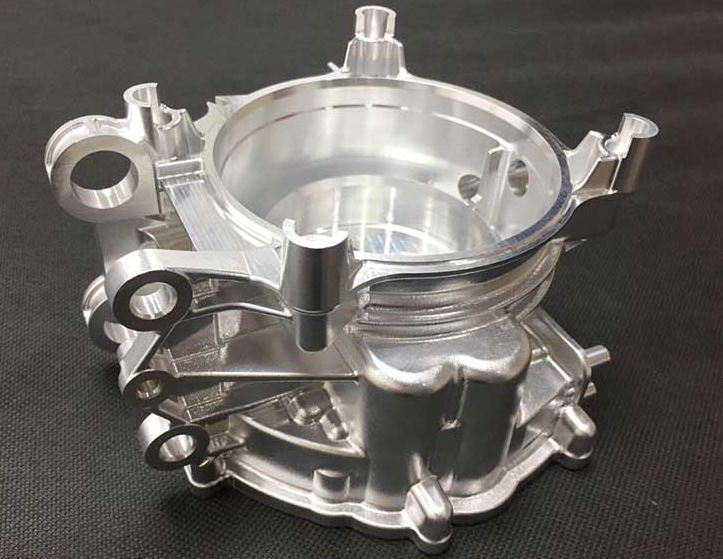The 10-Minute Rule for Stahl Specialty Company
The 10-Minute Rule for Stahl Specialty Company
Blog Article
All about Stahl Specialty Company
Table of ContentsStahl Specialty Company - QuestionsStahl Specialty Company for Beginners4 Easy Facts About Stahl Specialty Company ExplainedUnknown Facts About Stahl Specialty CompanyThe Main Principles Of Stahl Specialty Company
Chemical Comparison of Cast Aluminum Alloys Silicon promotes castability by decreasing the alloy's melting temperature and enhancing fluidity during casting. Additionally, silicon contributes to the alloy's strength and put on resistance, making it beneficial in applications where sturdiness is crucial, such as auto components and engine parts.It also enhances the machinability of the alloy, making it less complicated to process into completed products. This way, iron adds to the general workability of light weight aluminum alloys. Copper increases electric conductivity, making it helpful in electric applications. It also enhances rust resistance and includes in the alloy's total toughness.
Manganese adds to the toughness of light weight aluminum alloys and improves workability. It is generally used in wrought light weight aluminum items like sheets, extrusions, and accounts. The visibility of manganese help in the alloy's formability and resistance to breaking throughout manufacture procedures. Magnesium is a lightweight aspect that supplies strength and effect resistance to aluminum alloys.
It enables the manufacturing of lightweight components with exceptional mechanical residential or commercial properties. Zinc improves the castability of aluminum alloys and assists control the solidification process during spreading. It improves the alloy's stamina and solidity. It is usually discovered in applications where intricate forms and fine details are necessary, such as decorative spreadings and certain auto components.
Our Stahl Specialty Company PDFs
Because aluminum-silicon alloys have excellent casting residential or commercial properties, high gas properties, basic processes, and excellent corrosion resistance, aluminum-silicon alloys are most commonly utilized in the die-casting sector at home and abroad. At the very same time, aluminum-silicon alloys are additionally reasonably very early and commonly acknowledged alloys developed and made use of in die-casting. After continual research and renovation, most of the existing global mainstream aluminum-silicon alloys have been completed and are absolutely nothing greater than A356, A360, A380, ADC12, B390, and A413.
The primary thermal conductivity, tensile toughness, yield stamina, and prolongation differ. Amongst the above alloys, A356 has the highest thermal conductivity, and A380 and ADC12 have the most affordable.

Examine This Report about Stahl Specialty Company
In accuracy spreading, 6063 is well-suited for applications where elaborate geometries and top quality surface finishes are extremely important. Examples include telecommunication rooms, where the alloy's superior formability enables sleek and visually pleasing styles while preserving Read Full Report architectural stability. In the Lighting Solutions market, precision-cast 6063 parts create stylish and reliable lighting fixtures that require elaborate forms and good thermal performance.
(https://papaly.com/categories/share?id=c26321f23f6c4357aeb3039fb1053821)
The A360 exhibits remarkable prolongation, making it optimal for complicated and thin-walled elements. In accuracy casting applications, A360 is well-suited for markets such as Customer Electronics, Telecommunication, and Power Tools.

In accuracy spreading, aluminum 413 shines in the Consumer Electronics and Power Tools sectors. It's commonly used to craft detailed elements like smartphone real estates, video camera bodies, and power device cases. Its accuracy is remarkable, with tight tolerances approximately 0.01 mm, making certain perfect product assembly. This alloy's superior deterioration resistance makes it an exceptional choice for exterior applications, guaranteeing long-lasting, resilient products in the stated sectors.
8 Simple Techniques For Stahl Specialty Company
The aluminum alloy you choose will substantially impact both the casting process and the residential properties of the final item. Because of this, you should make your choice meticulously and take an informed technique.
Determining the most suitable aluminum alloy for your application will certainly imply evaluating a broad range of features. The first classification addresses alloy features that impact the manufacturing procedure.
The alloy you choose for die casting directly impacts numerous facets of the spreading process, like just how simple the alloy is to collaborate with and if it is prone to casting issues. Warm fracturing, also referred to as solidification splitting, is a regular die casting defect for aluminum alloys that can lead to internal or surface-level rips or splits.
Our Stahl Specialty Company Diaries
Particular aluminum alloys are a lot more vulnerable to hot splitting than others, and your option should consider this. aluminum metal casting. It can harm both the cast and the die, so you need to look for alloys with high anti-soldering buildings.
Deterioration resistance, which is currently a noteworthy quality of light weight aluminum, can differ substantially from alloy to alloy and is a vital characteristic to consider depending upon the environmental conditions your item will certainly be revealed to. Put on resistance is another residential or commercial property typically looked for in aluminum products and can differentiate some alloys.
Report this page